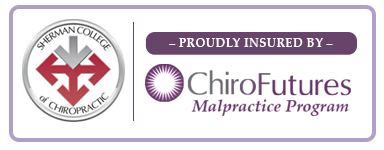
Imagine that someone walks up to the counter at McDonalds and orders a Whopper. The cashier does not inform the customer that this is McDonalds and they don’t serve Whoppers. Further he doesn’t tell him that if he wants a Whopper he should go to Burger King because they serve Whoppers there. And he doesn’t tell him that McDonalds has Big Macs and if he wants a Big Mac he can certainly get him one of those. No, instead, our McDonald’s cashier puts an order in for a Big Mac, takes his money and serves him a Big Mac. Our customer sits down, eats the Big Mac and leaves. Later that night he tells his wife he had a Whopper that day at McDonalds. His wife lovingly tells him that McDonalds doesn’t have Whoppers and the guy finally realizes what happened.
He’s now angry and upset that he paid money for something he didn’t want and didn’t ask for and the cashier never informed him about it.
Now imagine this same guy goes into a chiropractor’s office complaining of headaches, writes down on the intake form that his reason he wants to see the doctor is for his headaches. Imagine that the chiropractor is a subluxation based chiropractor who states he doesn’t treat disease. His mission is to analyze the spine for subluxation and then reduce them.
Imagine if this chiropractor does not address the disconnect between what our patient is in his office for and what his mission is. Such a disconnect is setting the chiropractor up for all sorts of problems.
One more scenario – imagine you took care of a patient with garden variety neck pain, they disappear from care and two years later you get a letter from an attorney announcing they are suing you for causing a disc herniation. During the discovery process its determined that you did not have any documentation of informed consent in the patient’s file. It’s is going to be easy for the plaintiff’s attorney to prove you did not establish informed consent and convince a jury that the patient was not informed of the risks.
The point is that it is crucial for you to address the expectations of the patients walking into your office and seeking your care. In a patient centered model of informed consent you are obligated to discuss the patient’s wishes and their goals related to their presenting complaints and the care they are seeking from you. If you don’t offer the type of care they are seeking or don’t manage the types of problems they have then you have an obligation to tell them.
You can certainly tell them the type of care you do provide and then give them the opportunity to consider that care but you have to give them the option to go elsewhere. Indeed, if the problem they are seeking care for is serious or has the potential to be serious then you really need to communicate this to them. Otherwise you may end up with a disgruntled patient that either sues you later or files a complaint with the board against you.
So in addition to discussing the benefits, risks and alternatives of chiropractic care with your patients, take the time to establish a dialogue with your new patient’s right from the very beginning about what their goals are and educating them on what you do so they can make an informed decision about getting care from you.
After you do that make sure the patient signs an informed consent document and that you place this form in their permanent record noting that it was reviewed with them. It’s also a good idea to update your informed consent with each patient on a regular basis. For long term patients in a family practice this might mean updating it yearly. It may also need to be updated when a new problem arises that is substantially different than why they were seeing you previously.
The bottom line is that every patient should have a signed informed consent document in their file. If you are insured with ChiroFutures, we have an informed consent template in the Members Only section of the website.
As always, I look forward to your feedback, comments and suggestions.
Matthew McCoy DC, MPH
CEO & Co-Founder
ChiroFutures Malpractice Program
drmccoy@chirofutures.org
http://www.chirofutures.org
